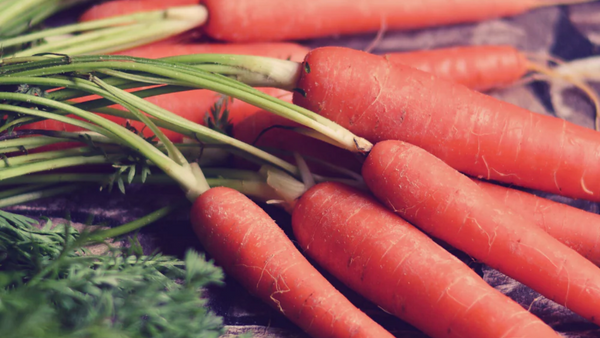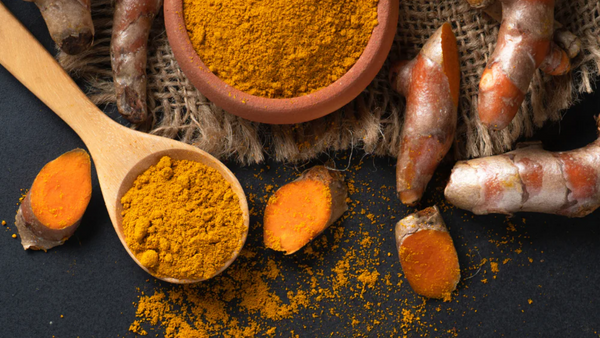OPC is responsible for red wine being considered so heart-healthy. It is found primarily in the seeds and skins of red grapes.
But why is OPC so healthy?
At the end of the article there is a 15% OPC voucher waiting for you. It's worth reading on!
First a few terms…
First, we should perhaps clarify a few terms that you will repeatedly stumble across in this article.
Oligomeric proanthocyanidins (OPC) are large molecules that consist of several chemically identical or similar building blocks (from ancient Greek oligoi "few" and méros "part"). In the case of OPC, these are proanthocyanidins. OPC is found as an ingredient in numerous plants that play a role as stimulants, food and medicine.
Proanthocyanidins belong to a group of flavonoids called tannins, and are therefore among the higher-level polyphenols. They are tannins that protect plants from fungal infections and parasites and can have a positive effect on wound healing in humans.
Resveratrol , a secondary plant substance, also belongs to the group of polyphenols and is found in large quantities in peanuts, in the skin of red grapes and in Japanese knotweed, for example. In 2016, synthetically produced trans-resveratrol was approved as a food ingredient [1] .
Flavonoids fulfil a variety of different functions in plants, such as UV protection or attracting pollinators. The flavonoids contained in fruit and vegetables are relevant for humans and their diet and are among the most common polyphenols. They are said to have particularly antioxidant properties.
An antioxidant is a chemical compound that either completely prevents or at least slows down the oxidation of other substances. Antioxidants are considered a means of fighting free radicals in the body.
The beginning - From peanut to remedy
In 1947, the French microbiologist and physician Jaques Masquelier discovered oligomeric proanthocyanidins during a study on the feedability of peanut skins . He originally wanted to know whether the abundant - and previously unused - peanut skins would be suitable as animal feed.
But when he discovered in animal experiments that these peanut skins helped in the healing of venous diseases , he was able to isolate the substance he believed was responsible: OPC.

How OPC is produced
Although it is found in many foods such as apples, cinnamon, coconuts, blackberries or red wine [2] , OPC as a dietary supplement is mainly made from grape seeds . As a waste product in the production of wine and grape seed oil, these seeds are an easily available raw material.
The grapes are pressed to make grape must. The seeds are sorted out of the press residue, called pomace, and gently dried. They are then cold-pressed to extract grape seed oil. Alternatively, they are ground into a fine flour. Grape seed flour, which is rich in polyphenols and proanthocyanidins [3], serves as the basis for many preparations and is either bottled or pressed into capsule form.
How does OPC work?
The health-promoting effects of OPC are due to its antioxidant and anti-inflammatory properties.
Antioxidant
The main effect of OPC or its metabolites is their antioxidant effect. The strongest OPC antioxidant described to date is 18.4 times as strong as vitamin C and 50 times as strong as vitamin E. OPC may also contain catalysts that can enhance the positive effects of vitamins A, C and E [4] . In addition, it is highly bioavailable [5] .
Human cell studies [6] and animal studies [7] have also shown that OPC has a strong antioxidant effect. It protects cells very effectively against oxidative stress.
Anti-inflammatory
The anti-inflammatory effect of grape seed extract was shown, for example, in a study on mice from China [8] . Not only were inflammatory bowel diseases alleviated by OPC, it also improved the intestinal flora and prevented the formation of pro-inflammatory cytokines [9] .
Oxidative stress and inflammatory reactions are closely related: oxidative stress causes damage in the body, which the immune system tries to eliminate. This in turn leads to inflammatory reactions.
Excessive oxidative stress and inflammation are associated with many diseases: [10]
- Type 2 diabetes
- Cardiovascular diseases
- Neurodegenerative diseases
- Autoimmune diseases
- Inflammatory diseases

OPC – In these cases it could help
Since antioxidants such as OPC reduce oxidative stress and thus inflammation, it is assumed that they can also reduce the risk of these diseases. This has not yet been scientifically proven, but there are numerous studies that indicate that OPC can be helpful in many chronic diseases.
Blood vessels
OPC has a positive effect on the blood vessels : It can not only lower blood pressure [11] [12] , it even promotes the formation of elastin and collagen fibers, which are important, among other things, in the construction of blood vessels.
Blood thinners
The blood-thinning properties of OPC (antiplatelet agent) were demonstrated in a study [13] . This approach is particularly interesting in the treatment of thrombosis.
Cholesterol levels and insulin resistance
Studies have also shown that grape seed extract has a beneficial effect on cholesterol levels [14] and insulin resistance [15] , although research in these areas is still quite limited.
Reduces the oxidation of LDL
LDL cholesterol is often referred to as the "bad" cholesterol. But this is a gross oversimplification and not entirely correct. LDL cholesterol only becomes problematic when it oxidizes due to excessive oxidative stress. [16] Some studies indicate that grape seed extract could reduce the oxidation of LDL. [17] This could theoretically reduce the risk of atherosclerosis and heart attacks . However, the research here is not entirely clear.
Improves brain health
In animal studies, grape seed extract was able to improve learning and memory performance . [18] OPC was also able to reduce amyloid plaques , which play an important role in the development of Alzheimer 's disease. [19]
There are also human studies in which OPC had a similar effect on brain performance . [20] However, further studies are needed to confirm the effectiveness of OPC.

Could help prevent cancer
The development of cancer is complex. However, it is well established that oxidative stress promotes the development of DNA damage , which in turn promotes cancer. [21]
Animal studies have shown that OPC can indeed help with cancer. [22] However, this has yet to be confirmed in human studies.
What side effects does OPC have?
In general, it can be said that OPC supplements are safe. [23] Of course, risk groups, including allergy sufferers, pregnant women or women who are breastfeeding , should consult their doctor before taking additional supplements.
Because of its blood-thinning properties, people who are about to undergo surgery or who have other problems with their blood clotting or are taking blood-thinning medication should also be careful.
Capsules, powder or liquid – How to take OPC
There are no scientific dosage recommendations yet, and the dosage varies from provider to provider. In general, however, the guideline for a daily dose is 150 to 300 mg .
Capsules can be taken with a little liquid and can therefore be easily integrated into everyday life. They are of course also more practical if you are on the go and do not want to go without your nutritional supplements.
In powder form , OPC can be mixed with liquid and consumed in the form of a smoothie, for example. Another advantage of the powder: it can be dosed more precisely. However, experts recommend not taking grape seed extract preparations with dairy products.
Grape seed extract is also available in liquid form , which you can easily take before or after meals.
Liposomal OPC from Viktilabs
Viktilabs Liposomal OPC is surrounded by liposomes (a protective shell) that prevents it from being broken down prematurely in the stomach. This means it reaches the intestine undigested , where it is absorbed. It is natural OPC extracted from grape seeds. It is free of artificial preservatives and other additives.
Conclusion: OPC is a powerful antioxidant
Oxidative stress can cause a lot of damage to the body. Many animal studies and some human studies indicate that OPC can protect against oxidative damage thanks to its antioxidant effect.
OPC is found in some foods, but for effectiveness it probably needs to be taken in higher doses in the form of a dietary supplement.
We at +Viktilabs would like to thank you for reading this far and are giving you a 15% voucher on our OPC products .
Simply copy the voucher code " OPC15+V " and paste it at checkout.
Click here to go to O PC
________________________________________________________________________
[1] https://www.bfr.bund.de/cm/343/durchfuehrungsbetritt-der-kommission-trans-resveratrol.pdf
[2] https://academic.oup.com/ajcn/article/79/5/727/4690182
[3] https://pubmed.ncbi.nlm.nih.gov/14977436/
[4] https://europepmc.org/article/pmc/4615409
[5] https://pubmed.ncbi.nlm.nih.gov/10962138/
[6] https://pubmed.ncbi.nlm.nih.gov/23747595/
[7] https://pubmed.ncbi.nlm.nih.gov/26462792/
[8] https://pubmed.ncbi.nlm.nih.gov/23963706/
[9] https://pubmed.ncbi.nlm.nih.gov/11749811/
[10] https://www.ncbi.nlm.nih.gov/pmc/articles/PMC5927356/
[11] http://www.unifarm-medicom.rs/pdf/MN-BP%20GSE%20in%20PreHyp%20Journal%20of%20Pharmacy%20and%20Nutrition%202012.pdf
[12] https://pubmed.ncbi.nlm.nih.gov/19608210/
[13] https://pubmed.ncbi.nlm.nih.gov/2516322/
[14] https://pubmed.ncbi.nlm.nih.gov/11508317/
[15] https://www.ncbi.nlm.nih.gov/pmc/articles/PMC3972396/
[16] https://www.ncbi.nlm.nih.gov/pmc/articles/PMC4258672/
[17] https://pubmed.ncbi.nlm.nih.gov/12475295/
[18] https://pubmed.ncbi.nlm.nih.gov/24171080/
[19] https://pubmed.ncbi.nlm.nih.gov/18815129/
[20] https://pubmed.ncbi.nlm.nih.gov/29163162/
[21] https://pubmed.ncbi.nlm.nih.gov/21216256/

















